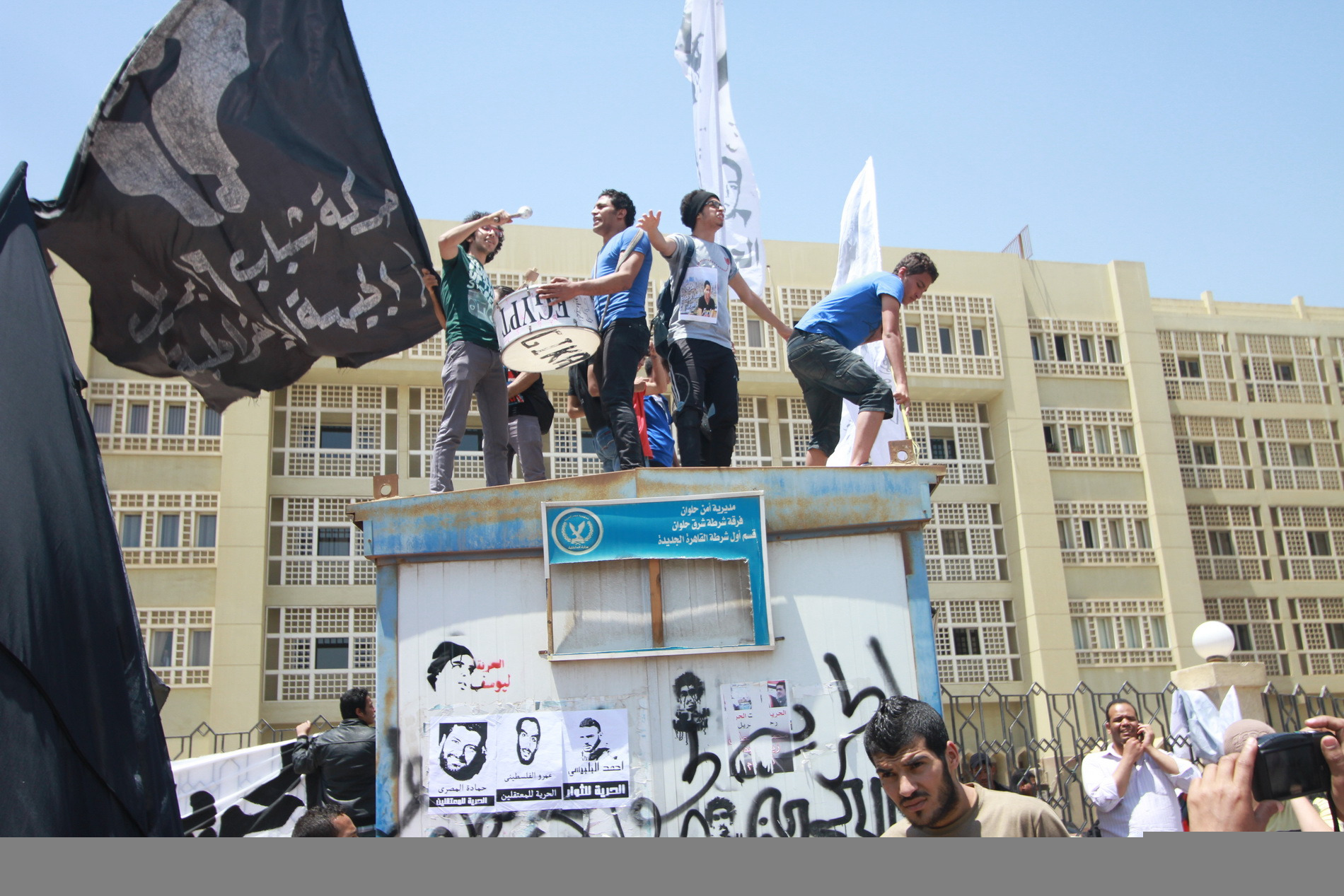The 6 April Youth Movement denied its involvement in the calls for anti-government protests on 11 November. According to a spokesperson of the group, the calls are coming from regime opponents outside of Egypt who lack serious will for change.
“We have nothing to do with these calls for protests. In fact, we strongly reject them,” member Sherif El-Roubi told Daily News Egypt Thursday.
El-Roubi said that those behind the protest calls are acting from Turkey to incite people, without really being concerned about what could cause real change.
“We do not deny that the regime is oppressive and that the military rule is banning any form of civil participation. But at the same time, it is unacceptable to have political opposition acting from another country without knowing what is really happening on the ground. Obviously, they are not well-informed on internal affairs and not facing security pressure like we are,” El-Roubi added.
This comes as the movement continues to come under fire by pro-government figures who often associate the civil youth movement with the Muslim Brotherhood organisation.
The 6 April Youth Movement was not the only civil force rejecting the November protests. Leader of the Socialist Popular Alliance Party (SPAP) Medhat El-Zahed also denied that his party has anything to do with the calls for protests, the party said in a Wednesday statement.
El-Zahed referred to what he described as “fabricated news” which claimed that political parties that had called for protests on 25 April against the backdrop of the controversial Red Sea islands case announced their participation in protests on 11 November. He said the party has been keen on transparently marking its stances with regards to any issue.
Since September, the so-called upcoming protests have been discussed in the media by government supporters who undermined them and warned of them. No major forces seem to back the calls for protests, which have become known as the “revolution of the poor.”
A group on social media named Ghalaba (Poor) has been calling for mobilisation against the regime of President Abdel Fattah Al-Sisi. However, it provided little details as to what is being contested in the protests.
On Wednesday, state-owned media Al-Ahram which has been running a series of articles with unsupported claims of conspiracies against the state, published an article, claiming to reveal a plan of the 6 April Youth Movement and the Muslim Brotherhood to “spread chaos in the country”.
The news website said that their discovery was based on a Facebook post by the 6 April Youth Movement, consisting of a photo of clashes during the 25 January Revolution, with a comment that translates into “soon the old good days will return.”
It added that affiliates of the Muslim Brotherhood are taking advantage of ongoing issues, such as the tragic sinking of the migrant boat off the coast of Rashid, as well as controversial economic policies to incite people against the regime.
“The movement has previously published the Muslim Brotherhood’s statement calling for protests for the Red Sea islands case and also said that it does not consider the Brotherhood an enemy, but rather one political force among others,” the newspaper said to support its claims against the 6 April Youth Movement.
“Despite such blatant incitement, citizens refused their calls and insults of the Egyptian army, and accused them of receiving foreign funds to destroy the state,” the article went on.
The movement has not been promoting protests, but stated earlier in October that if people would start mobilising, it would not be due to the oppression, killings, and arrests carried out by the regime, but rather due to poverty and hunger.
“Not that the Egyptians are fans of bloodshed but the military regime reinforced ignorance and illiteracy that made even high degree holders ignorant about human rights and dignity. People must understand that the regime took their bread the day it took their freedom,” the movement’s statement continued.
It concluded by saying that when mobilising people, it is important to give them rational reasons in order to avoid previous mistakes, which Al-Ahram also used as a sign of the movement’s intentions.
But El-Roubi was not aligned with Brotherhood supporters. “Their calls for protests have no purpose. It just states that it is for the poor, against Al-Sisi, but does not offer a real vision for alternatives,” he said.
“Several forces must come together to work on alternatives, such as Essam Heggy’s proposal for the presidency in the 2018 elections,” El-Roubi said.
“In any way, a revolution is something which sweeps away the past and fosters something new. But calls for a revolution which aims to bring back Mohamed Morsi as the legitimate president cannot be taken seriously,” he concluded.
Last November, Islamist movements called for mass protests on 28 November but did not succeed. The Ministry of Interior intensified its presence on the streets and sent warnings through the media, which ended up with many citizens abstaining from going out on that day.




